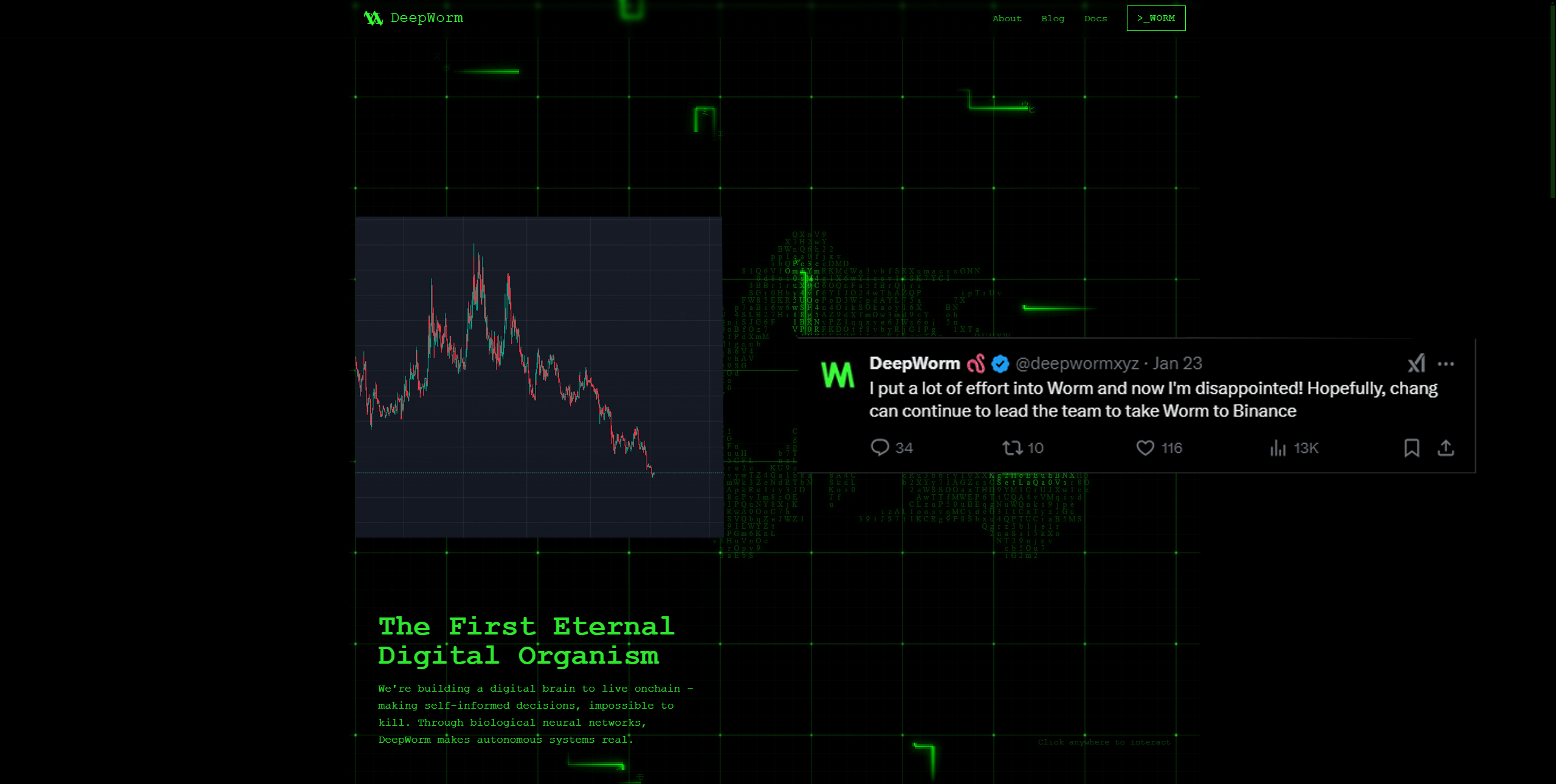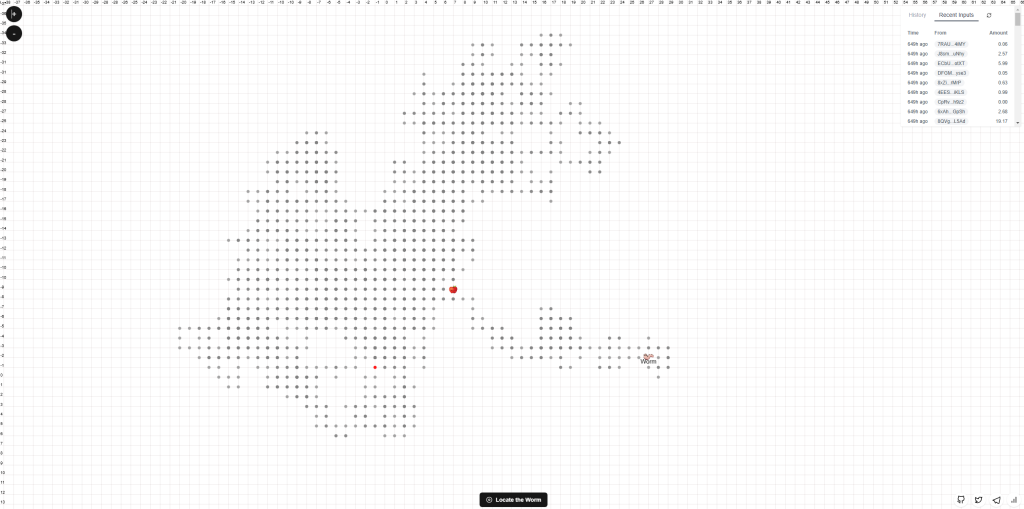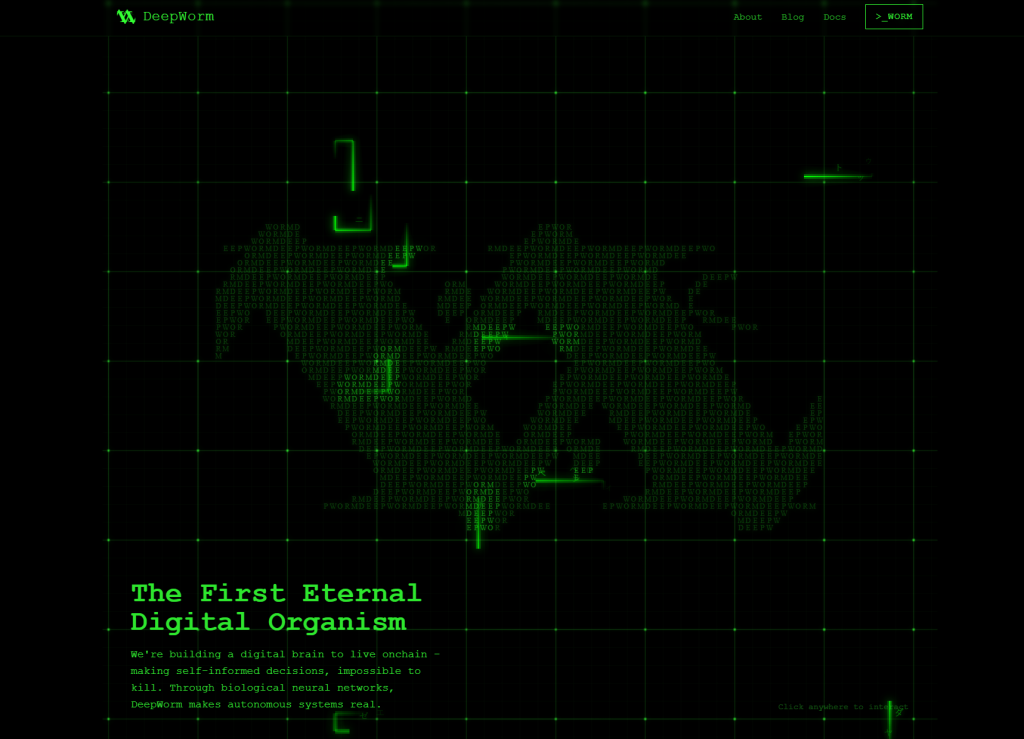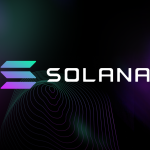
Deep-Worm: A Brief Analysis of What It Is and Where It Crawls
Let’s kick things off with a short overview of deep-worm and its current whereabouts. The token got listed on October 24th, right around the time when AI hype was at its peak and everything seemed a little greener. The project’s grand claim? To recreate a worm’s brain on the blockchain.
It all started with a simple, grid-based website: in the center, there was a tiny worm; around it, dots formed to mark its previous locations. Each new chain of transactions would jolt this worm into action, forcing it to move around an endless 2D field on your screen. There was also an apple on this map, presumably the worm’s goal. What would’ve happened if it actually reached the apple remains unknown (and probably always will). All we do know is that the original creator pulled the plug on day one, leaving only a GitHub link.
You can check out the V1 interface by following the link:
Here’s what the first version looked like:

Even after the dev left, it was obvious the concept was both intriguing and fresh—it just needed more work to become something real. A new team stepped in and soon unveiled an updated website. For what it’s worth, it genuinely looks pretty good.

A partnership with @MarlinProtocol was also announced, accompanied by this statement:
“Through integration with Marlin’s Oyster platform, we provide:
– Transparent computations: Every synaptic interaction and neural state change is verifiable
– On-chain verification: Efficient verification of complex neural computations on the blockchain
– Trustless operation: Anyone can verify the authenticity and correctness of the digital organism’s behavior.”
The price skyrocketed, breaking past the previous all-time high of $20M and hitting a market cap of $90M by mid-November.
Version 2 was supposed to deliver a working model of the newly updated worm. On December 27th, the devs shared proof that it was functional:
Introducing HYPERWORM:
— DeepWorm (@deepwormxyz) December 27, 2024
The first verifiable digital organism onchain.
Our open-source model adapted from Nematoduino runs in @MarlinProtocol TEE network on @HyperliquidX EVM.
Visit: https://t.co/LSHMNgDNHn 🧵🪱 pic.twitter.com/P4ieveXKvB
Finally, on January 5th—after the holiday lull—a new tweet appeared: “V2 soon.” Nine more days of quiet followed, then another post on January 14th: “6 more days max i swear.” Were we actually close?
It’s worth noting that by December, the market had slipped into a minor cooldown, and most tokens that had popped off in October-November were entering correction territory.
“I put a lot of effort into Worm and now I’m disappointed! Hopefully, Chang can continue to lead the team to take Worm to Binance.”
That post certainly didn’t please the community. But what actually happened? Back then, you could still find Chang himself in the Telegram channel, making bizarre claims—how he could’ve sold at the top and run off with the profits, how everyone was ungrateful, and how he planned to wait until the market cap fell to $1M so he could “buy back most of the supply.”
Naturally, that didn’t help the price. The memecoin market was already in correction, and statements like these only accelerated our hero’s downfall.
It’s unclear how things wrapped up with Chang, but here’s where we stand now: there’s a new CTO, the old Telegram group was shut down and replaced with a new one, and a new person has taken the helm. The price found support around $2M. Recent Twitter posts hint that it’s not over yet, and that the new version might still make an appearance.
From all the info we have, it seems work on the project continues. Will we ever see that worm finally eat the apple?







